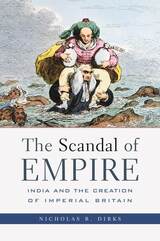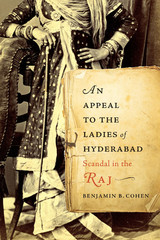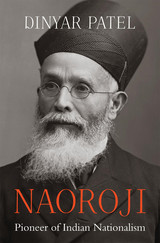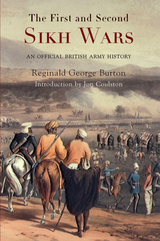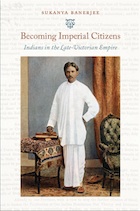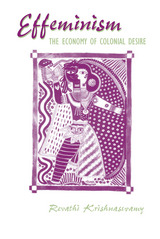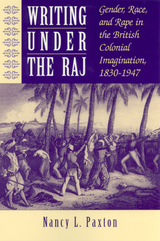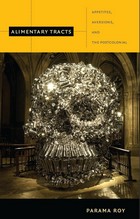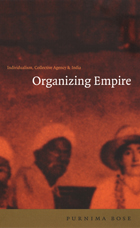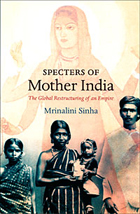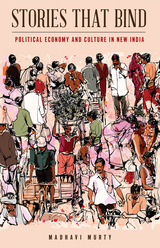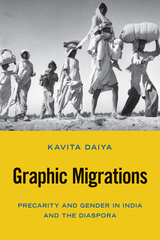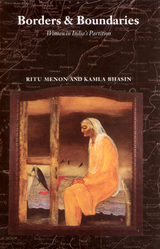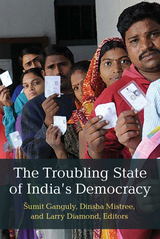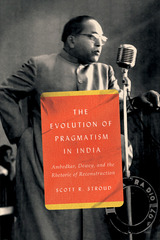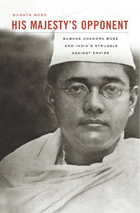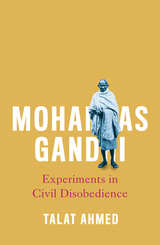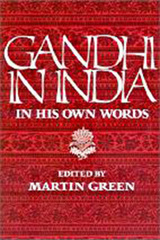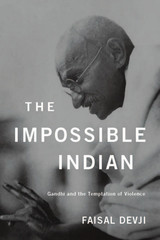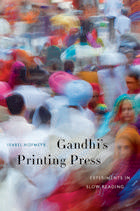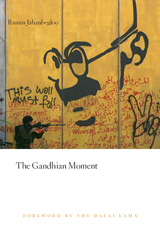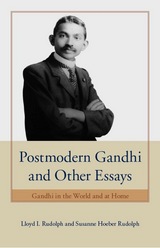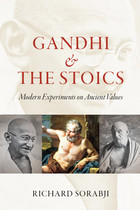Stories That Bind: Political Economy and Culture in New India
Rutgers University Press, 2022
Cloth: 978-1-9788-2876-6 | Paper: 978-1-9788-2875-9 | eISBN: 978-1-9788-2877-3 (ePub) | eISBN: 978-1-9788-2878-0 (PDF)
Library of Congress Classification DS480.84.M877 2022
Dewey Decimal Classification 954.04
Cloth: 978-1-9788-2876-6 | Paper: 978-1-9788-2875-9 | eISBN: 978-1-9788-2877-3 (ePub) | eISBN: 978-1-9788-2878-0 (PDF)
Library of Congress Classification DS480.84.M877 2022
Dewey Decimal Classification 954.04
ABOUT THIS BOOK | AUTHOR BIOGRAPHY | REVIEWS | TOC
ABOUT THIS BOOK
Stories that Bind: Political Economy and Culture in New India examines the assertion of authoritarian nationalism and neoliberalism; both backed by the authority of the state and argues that contemporary India should be understood as the intersection of the two. More importantly, the book reveals, through its focus on India and its complex media landscape that this intersection has a narrative form, which author, Madhavi Murty labels spectacular realism. The book shows that the intersection of neoliberalism with authoritarian nationalism is strengthened by the circulation of stories about “emergence,” “renewal,” “development,” and “mobility” of the nation and its people. It studies stories told through film, journalism, and popular non-fiction along with the stories narrated by political and corporate leaders to argue that Hindu nationalism and neoliberalism are conjoined in popular culture and that consent for this political economic project is crucially won in the domain of popular culture.
Moving between mediascapes to create an archive of popular culture, Murty advances our understanding of political economy through material that is often seen as inconsequential, namely the popular cultural story. These stories stoke our desires (e.g. for wealth), scaffold our instincts (e.g. for a strong leadership) and shape our values.
Moving between mediascapes to create an archive of popular culture, Murty advances our understanding of political economy through material that is often seen as inconsequential, namely the popular cultural story. These stories stoke our desires (e.g. for wealth), scaffold our instincts (e.g. for a strong leadership) and shape our values.
See other books on: 1947- | Asian Studies | Hindutva | Nationalism & Patriotism | Neoliberalism
See other titles from Rutgers University Press

